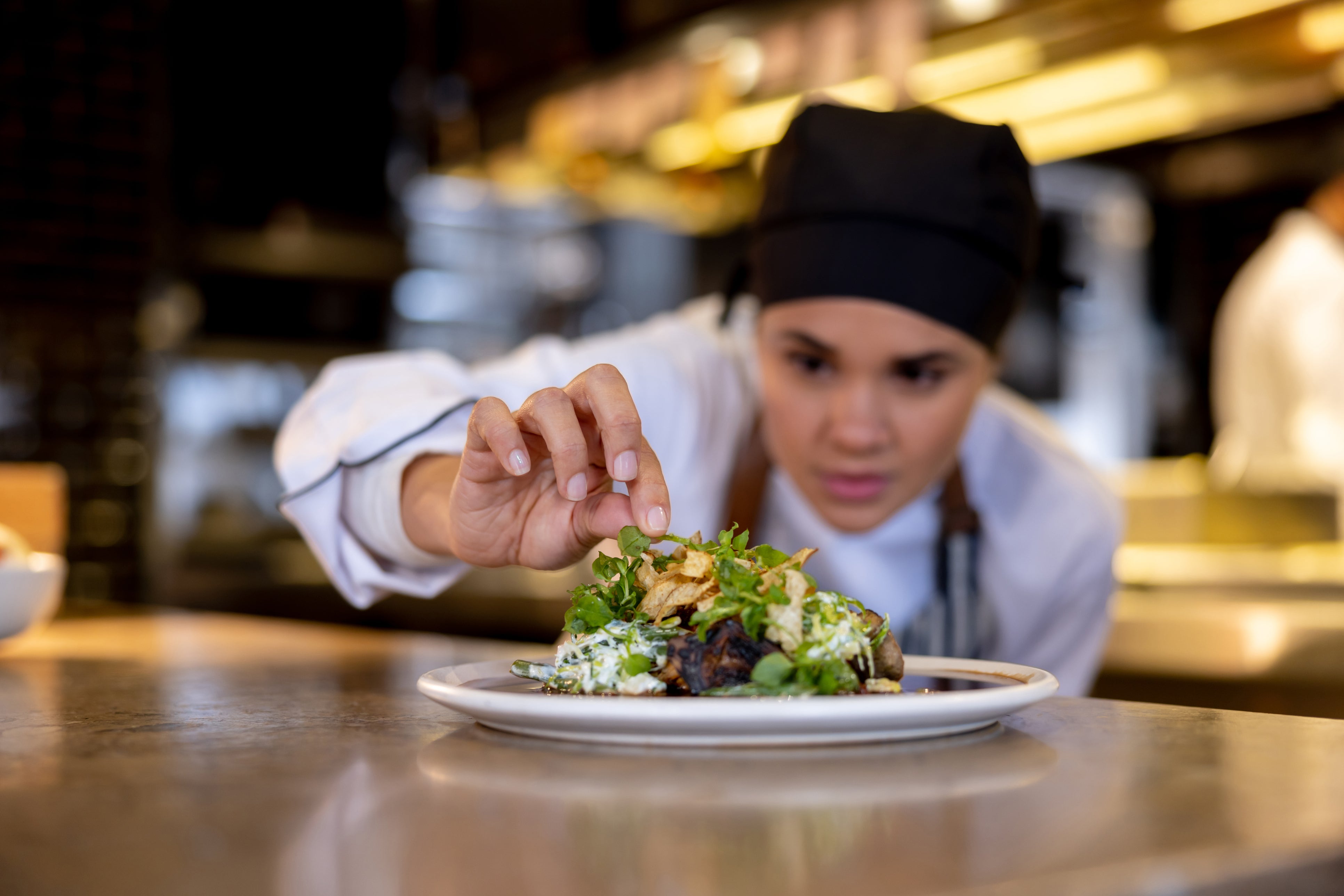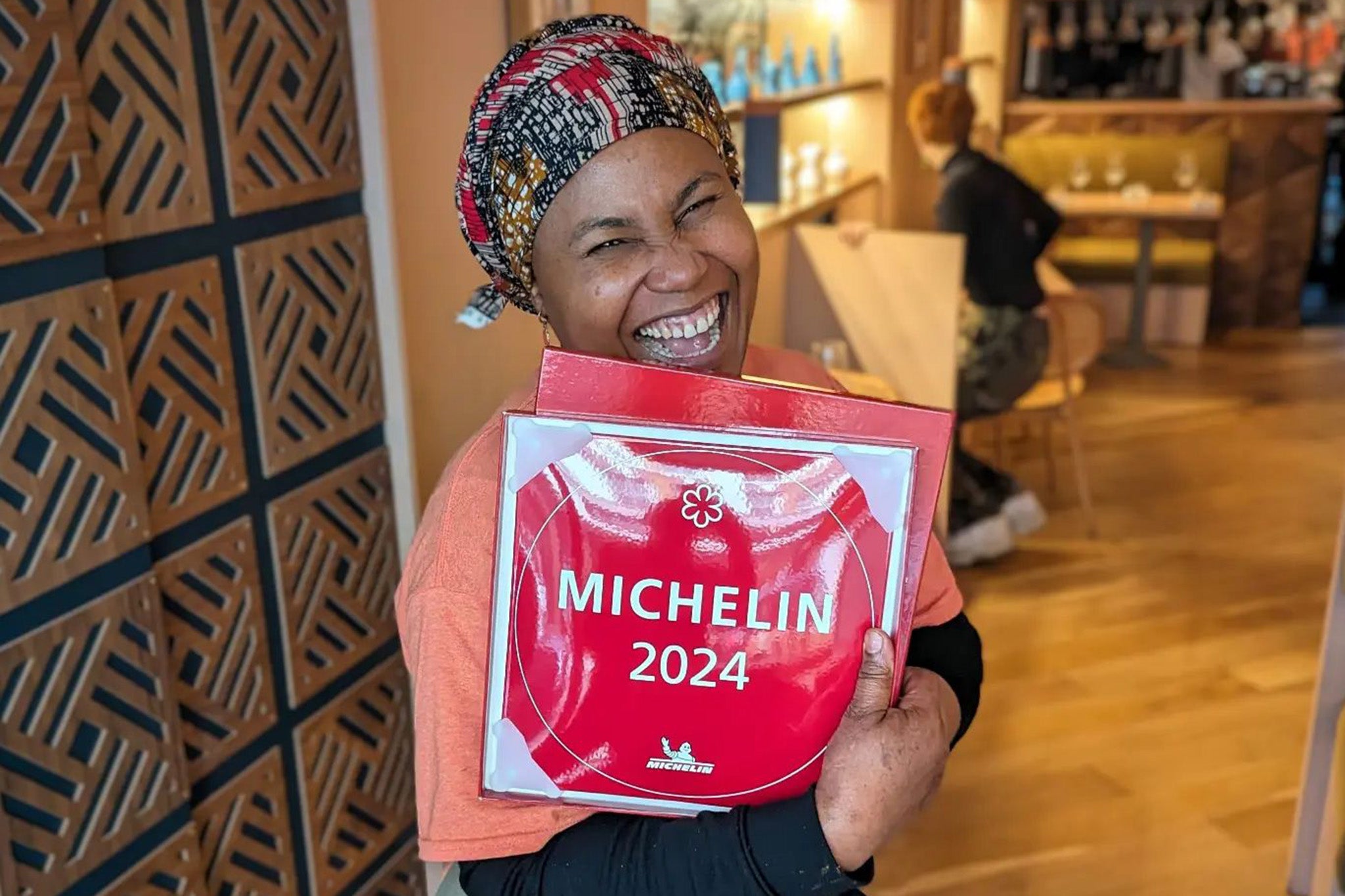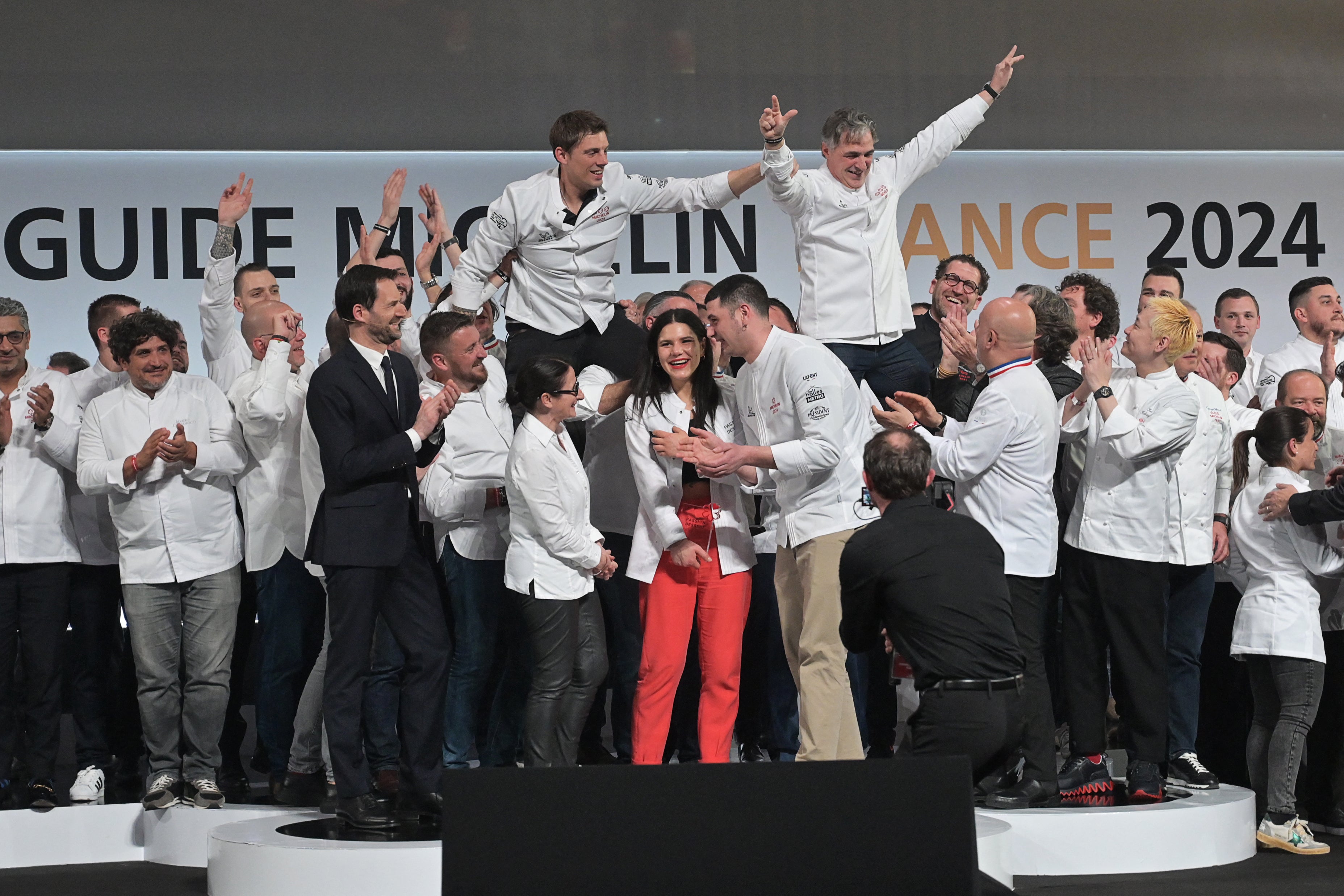Top female chefs are already in the kitchen – so why not in the Michelin Guide?
For every female-led Michelin-starred establishment, there are 16 run by men, and this week the guide handed out just six of over 50 French stars to women. There are more women working in top kitchens than ever before, so why is recognition still so elusive, asks Hannah Twiggs


In news that should come as a shock to no one, of the 52 new Michelin stars handed out to French chefs at a ceremony at the Palais des Congrès in Tours on Monday, only six of them were to female-led restaurants. That brings the total number of women “honoured” by the guide in the country to 32… out of 639.
“Where are all the women?” exclaimed the guide’s international director Gwendal Poullennec in a speech on the night, presumably a pre-emptive attempt to fend off the impending criticism. This is hardly the first time Michelin has found itself in troubled waters, though it might be the first time they’ve had the balls to acknowledge it. Bravo, I guess?
Perhaps they’d done some loin girding since February, when they dished out only one Michelin star to a female chef in the UK. Adejoké “Joké” Bakare, whose West African restaurant Chishuru received the honour, is also the first Black female chef to make the UK list, and the second ever in the world.
Really, French female chefs should be grateful. In the Netherlands, which is supposedly the second-best country in the EU for gender equality, only 1 per cent of Michelin-starred restaurants are run by women, according to research by Chef’s Pencil published last year. In Denmark, third for gender equality, there isn’t a single one.

According to their research, France represents something closer to the global average of 6 per cent with 5 per cent of its Michelin-starred chefs being female. Their closest neighbours and culinary rivals Spain and Italy have 11 and 10 per cent respectively.
So why is it so difficult for women to get recognised? “Too few women are leading kitchens, despite the fact that more and more of them are working in kitchens,” Poullennec suggested.
I am loathe to agree with him, but he’s not wrong. The number of female chefs has been steadily increasing globally over the past few years – in the UK, it’s risen a third since 2016 and they now make up a quarter of the workforce.
That might sound like something to celebrate but only 8.5 per cent of Michelin-starred chefs in the UK are women.
Here’s another statistic for you: the gender pay gap in this country is closing faster than that. Worldwide? For every female-led Michelin-starred restaurant, there are 16 run by men.
Women’s absence from pole position in top kitchens is undeniably the reason so few of them make Michelin’s list, but… can you really blame them? A quick google of the latest sexual harassment allegations against chefs should answer that question better than I can.
The most famous recent example of which is Dan Doherty, who starred alongside Mary Berry in the BBC’s Best Home Cook. According to a report in The Sunday Times in 2019, he was forced to leave his London restaurant The Royal Oak while an investigation was underway into claims he’d demanded oral sex from a junior female colleague and told others he wanted to see them without their kitchen whites.

While he denied the allegations, saying “I would never intentionally make offensive comments to anyone I work with, male or female,” his bosses said they had “acted” on the recommendations of the investigators. Was he allowed back? Yes, albeit in a different role. Did he go on to open another restaurant? Of course.
There are plenty more I could name were it not for legal restrictions (one involves cling film) but it doesn’t take a genius to put the dots together. Testimonies from well-known female chefs paint an even bleaker picture. One where sexism and sexual harassment are simply accepted as part of the job. After she shared her own story on social media, Poppy O’Toole, a judge on Young MasterChef, received thousands of messages from women who had experienced instances of sexual assault, misogyny and harassment.
Despite “multiple counts of physical sexual harassment, all from the age of 17 onwards working in pubs and restaurants”, she accepted “that’s what the industry is like”.
So ingrained is sexual harassment in the hospitality industry, that in 2022 the Equality and Human Rights Commission (EHRC) launched an “action plan” to provide venues with resources to teach them how to protect their staff. Read that again.
The onus should not be on women to get to the top against all odds. The onus is on the world’s largest and most prestigious restaurant awards body to protect our place in it
And, simply, women might be put off from working in an environment in which they’re not made to feel like they belong. If you were an aspiring young female chef looking for work last July and you saw TikTok star-turned-restaurateur Thomas Straker’s Instagram post featuring a military-style lineup of his all-white, all-male team at his Notting Hill restaurant Straker’s, would you rush to send in an application?
The chef was forced to apologise for what his peers branded a “rude” response to criticism of the post when he said, “Honestly, people need to calm down”, and later in an interview with the Evening Standard, “It felt like a personal attack on me.” Incidentally, Straker’s is still fully booked for months.
That’s not to mention the brutally long and antisocial working hours, or that the hospitality industry has the highest proportion of low-paid and part-time jobs compared to other industries. That, of course, affects both men and women, but with women still responsible for the lion’s share of childcare, they surely bear the brunt.
A pregnant sous chef of mine told me the restaurant she worked in hadn’t even thought to do a risk assessment for pregnant working women in the 20 years it had been operating. You don’t hear much about Michelin-starred chefs taking maternity – or, in fairness, paternity – leave. Stars are awarded to restaurants, not chefs – a subtle distinction worth remembering – but they are often rescinded when the head chef leaves and the quality of the restaurant dips.

So another year of Michelin stars, another stark reminder of the barriers to entry for women. Michelin might say that it awards stars according to five criteria – the quality of the products, the harmony of the flavours, the mastery of techniques, the personality of the chef as reflected in the cuisine, and the restaurant’s consistency over time – but it’s hard not to conclude that gender is a barrier to success too.
Not to go all Alanis Morissette but isn’t it ironic that while men have been telling women to “get back in the kitchen” for years, now that we’re here, they don’t want to acknowledge us?
Perhaps the answer lies in Poullennec’s own words. “I know many chefs have come up with strong initiatives to promote talented young women,” he said. “I’m very happy about that and hope that one day they’ll open their own restaurants.”
Well here’s an idea: put your money where your mouth is and make one of your criteria the effort a restaurant goes to to protect its staff from sexual harassment. Or to ban the use of NDAs when they do happen. Or to award points when diversity is actively promoted. Or to foster equal opportunity from the ground up. Take your pick.
We’re not asking for a female-only award – this is not the Oscars. But the onus should not be on women to get back in the kitchen. The onus is on the world’s largest and most prestigious restaurant awards body to protect our place in it.
Poullennec’s pronouncement that this is “a reality we deplore” feels a little like acid reflux. Congratulations to those six female chefs, truly. They’re amazing and they deserve it. But once again we’re forced to choose between accepting the smallest territory gains as giant victories and coming across as sore losers. Well, sorry Michelin, but six really isn’t enough.
Join our commenting forum
Join thought-provoking conversations, follow other Independent readers and see their replies
Comments


Bookmark popover
Removed from bookmarks